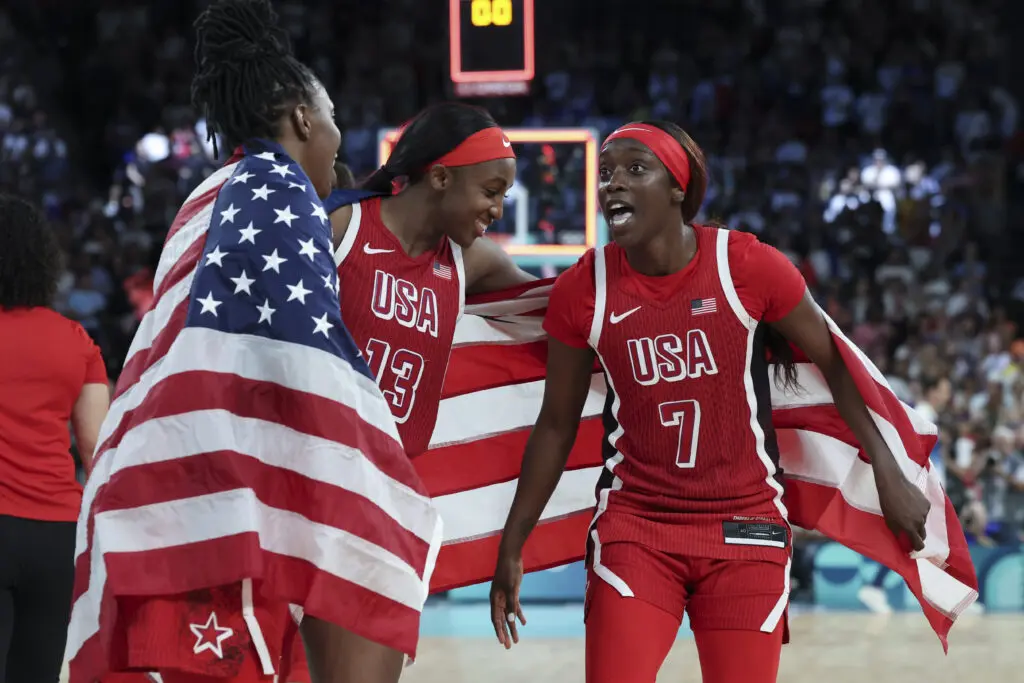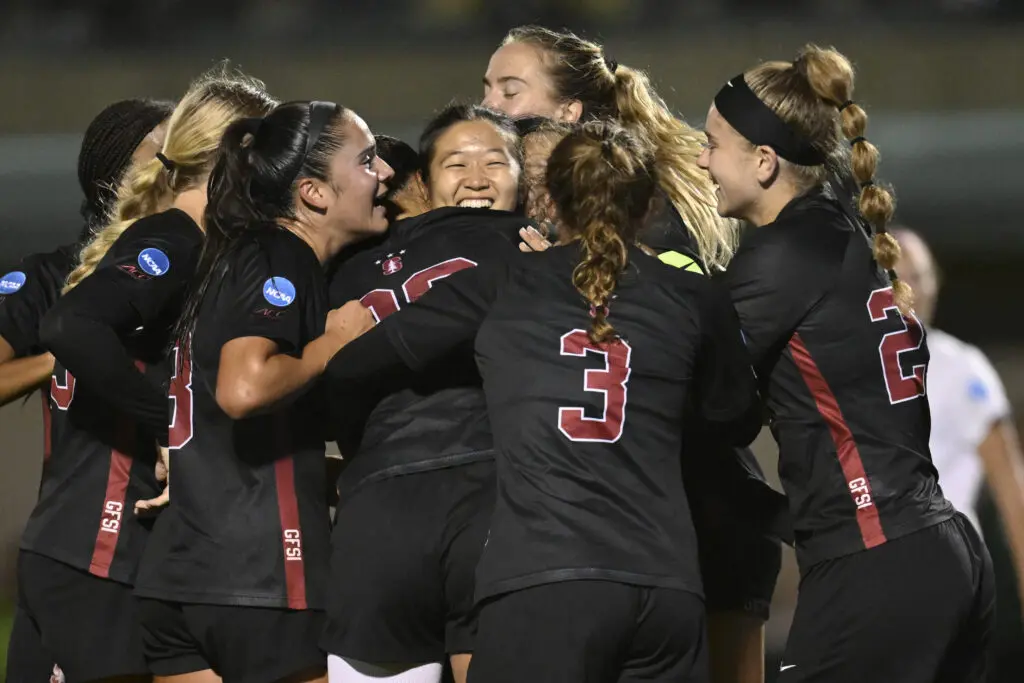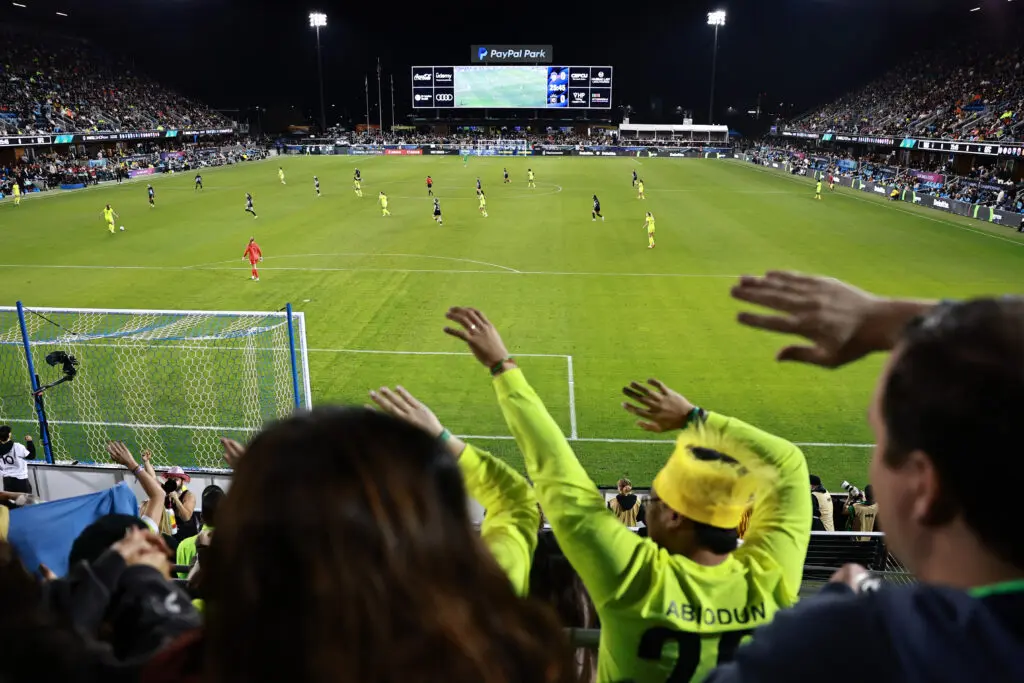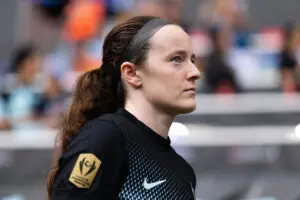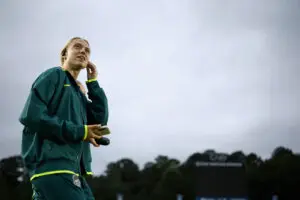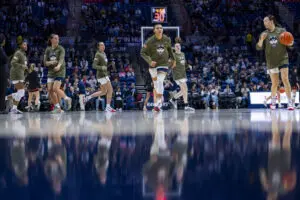Before Colin Kaepernick took a knee, and even before Tommie Smith and John Carlos raised their fists on the Olympic podium, Rose Robinson refused to stand during the national anthem in 1959. Nine years later, Wyomia Tyus wore dark shorts in a protest for human rights at the 1968 Olympics.
Just Women’s Sports is celebrating Black History Month by highlighting the achievements of African-American women who not only excelled in their sport, but also changed the landscape of society. Male athletes are often remembered for historical and contemporary acts of activism, yet there is a long history of Black women taking a stand and using their platform for political and ideological protest.
While we remember iconic firsts — Black women who broke the color barrier — as symbolic acts that prompted societal change (for example, Althea Gibson, the first African-American to win a Grand Slam, and Wilma Rudolph, the first American woman to win three gold medals in a single Olympiad), the stories of two courageous women who engaged in remarkable displays of activism have largely been forgotten.
Rose Robinson’s life of activism
Born in Chicago in 1925, high jumper Eroseanna “Rose” Robinson rose to prominence in the 1950s after achieving success on the Amateur Athletic Union (AAU) track circuit. Upon winning the 1958 AAU National Championship she was named to the U.S. Women’s Track and Field team.
Shortly thereafter, her predominantly Black team was invited to compete in the Soviet Union at a State Department track meet during the height of the Cold War. Robinson refused to attend, telling Jet Magazine: “I don’t want to be used as a political pawn.”
Robinson’s public refusal to promote U.S. foreign policy came at a time when Black athletes, musicians and other notable figures were paraded around the globe to counter the image Jim Crow cast on America.
This was not the first time Robinson had challenged injustice. As a leader in her local chapter of the Congress of Racial Equality (CORE), Robinson led skate-ins throughout the 1950s to desegregate a popular roller skating rink in Cleveland.
In the summer of 1959, less than a year after she rejected the invitation to compete in Russia, Robinson attended the Pan American Games, where more than 2,000 athletes from 24 different nations came together to compete. When “The Star-Spangled Banner” was played at the opening ceremony, the crowd inside Soldier Field rose to their feet, but Rose Robinson defiantly remained in her seat.
Robinson is considered to be the first prominent American athlete to use such a tactic.
During the 1959 Pan American Games, high jumper Eroseanna “Rose” Robinson refused to stand for the national anthem. Robinson was also active with a local chapter of the Congress of Racial Equality (CORE) and led anti-segregation actions. #HerDreamDeferred pic.twitter.com/49zhQBu5Ih
— African American Policy Forum (@AAPolicyForum) March 31, 2021
Her protest drew the attention of the media, as well as the federal government. Six months later, Robinson was arrested on charges of tax evasion. At her hearing, Robinson refused to pay her taxes due to her objection to American military practices.
“I have not entered my tax return for 1954-1958 because I know a large part of it goes to armaments,” she told Jet Magazine at the time. “The U.S. government is very active in atom bombs and fallout, which is destructive rather than constructive. If I pay income tax, I am participating in that destruction.”
Robinson was sentenced to a year and a day in jail over the amount of $386.
Imprisonment did not stop Robinson’s activism. While in jail, she staged a hunger strike, refusing all food and drink for three months. Robinson became so weak that officials had to carry her to court for her hearing. The judge offered to commute her sentence if she paid the fine, but still, Robinson refused to support the U.S. war machine.
Her protest drew national attention leading to Robinson’s early release, but the hunger strike weakened her body so much that her track career was effectively over. Robinson continued with her activism until she died in 1976.
Wyomia Tyus: A woman long overlooked
When Carl Lewis won his second consecutive gold medal in the 100m at the 1988 Olympics, he was celebrated as the first person to accomplish such a feat — 20 years after Wyomia Tyus had actually done it first.
In the summer of 1968, Wyomia Tyus set out to defend her 100m title at the Olympics in Mexico City. Tyus ran an 11.08, set a world record and became the first athlete, male or female, to win back-to-back 100m titles.
Tyus, the daughter of sharecroppers, ran her history-making race in dark blue shorts — the closest she could find to black — as opposed to the team-issued white shorts.
Two days before Tommie Smith and Jon Carlos raised their black-gloved fists in what would become an iconic image, Tyus protested, though news outlets did not make note of what she did. Tyus, who grew up in Jim Crow Georgia, was taking a stand against the treatment of Black people in America.
“The shorts were at the forefront of my whole being to bring attention to human rights, whether anybody picked that up or not,” Tyus told the New York Times last year while reflecting on her gesture.
Prior to the Olympics, the Olympic Project For Human Rights held meetings to discuss ways athletes could take a stand. Women, however, were not invited.
Thus, Tyus fashioned her own protest without telling anyone. She wore her dark shorts again in the 4x100m final. When she won, she briefly raised her fist on the victory podium and then dedicated her medal to Smith and Carlos, who were barred from the Olympics after their show of defiance.
It was until her memoir, “Tigerbelle,” was published in 2018 that the public became aware of Tyus’ long and courageous history of activism.
Mariah Lee is a professional athlete and freelance writer who specializes in the intersection of race and sports. She holds a B.A. from Stanford University and a M.S. from the Wake Forest School of Business. Follow her on Instagram @merdashewrote.

